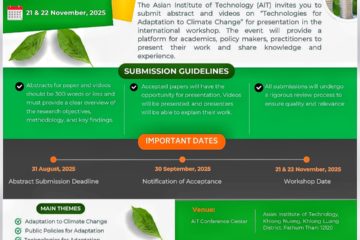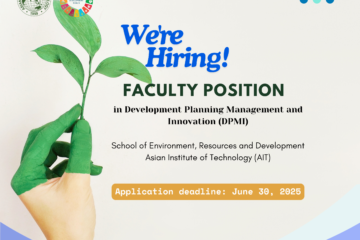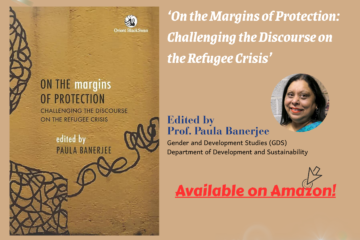Learning Across and Beyond Borders: Our Learning and Experience During the Exchange Program with Ochanomizu University, Tokyo, Japan
Published by DDS on
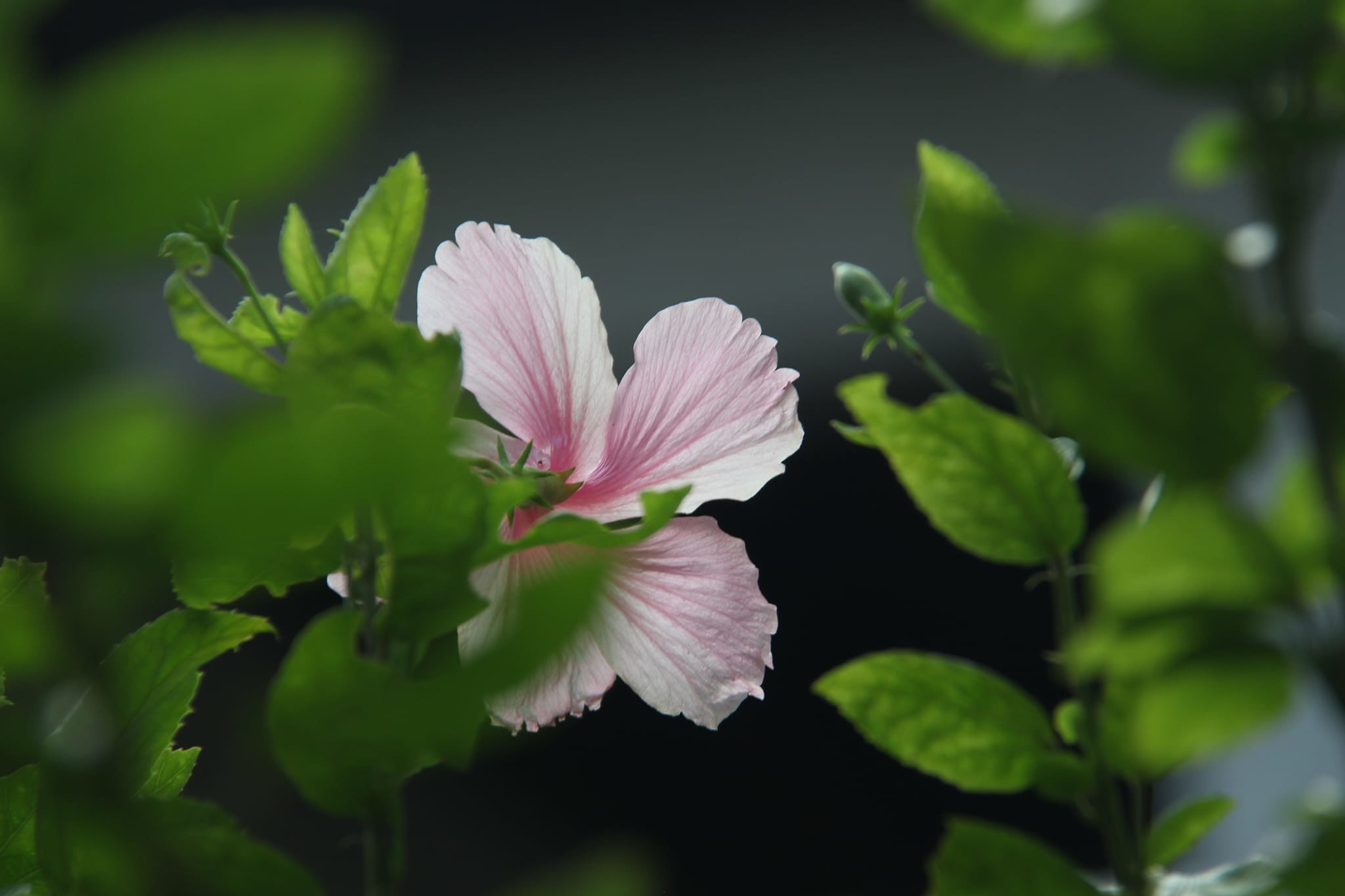
Learning Across and Beyond Borders: Our Learning and Experiences During the Exchange Program between GDS and Ochanomizu University, Tokyo, Japan
Written by Tin Lapyae Woon & Pransu Khakurel
22 August 2023 – The Asian Institute of Technology (AIT) has consistently advocated “Learning across borders” over the years. It promotes learning across borders from students worldwide and allows its students to travel and learn different interesting perspectives through exchange programs. We were lucky enough to be a part of one of those exciting exchange programs at Ochanomizu University, Japan, from our course Gender and Development Studies, as a part of the agreement between Gender and Development Studies at AIT and the Institute of Gender Studies at Ochanomizu University. The seven-night, eight-day program was enriching and exciting. It enhanced our personal and academic avenues. The visits to different organizations and experts advocating and researching migrant workers based in Japan were particularly interesting. We garnered a lot of insights and information associated with the data and status of migrant workers based in Japan, particularly from our countries of origin, Myanmar and Nepal.
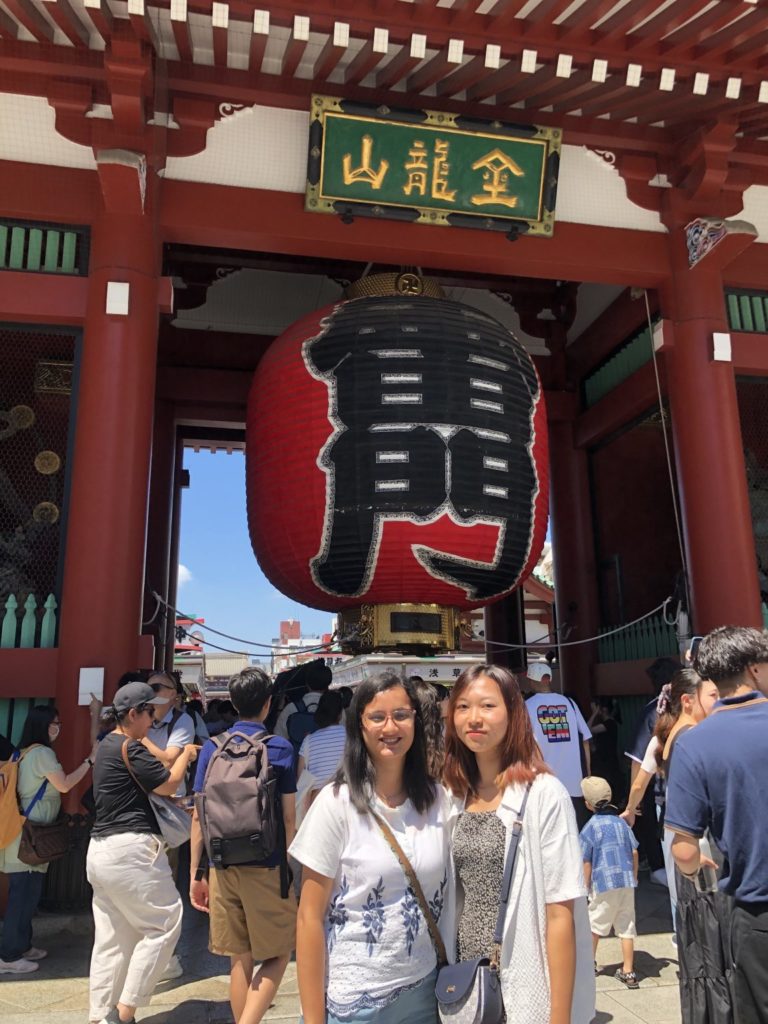
The very first interaction of the visit was with “Link to Myanmar,” an organization based in Japan working on the rights and placements of Myanmar migrant workers. We not only learned about the issues faced by Myanmar migrant workers in Japan but also were excited to hear about the effort made by the organization to resolve the issues. It was interesting how the organization, led by an international couple originally from Myanmar and Japan, was working so passionately towards orienting migrant workers from Myanmar to adapt to the Japanese working environment, also facilitating them to settle in Japan through the provision of jobs, helping in accommodation and other necessities for incumbent migrant workers from Myanmar. It mainly showed their respect and empathy towards each other’s culture while embracing their differences to promote people from each other’s country.
Another key highlight was the visit to “Solidarity Network with Migrants, Japan,” based in Ueno, Tokyo, where we learned about the challenges faced by the migrants in Japan and how they were attempted to be mitigated by this institution. It was particularly intriguing to know the pros and cons of different training programs attracting many migrant workers to Japan, leading to terrible violence through systems, violated labor laws, and poor living conditions. However, the attempt made by this institution explored our horizons on how a national network of organizations and individuals has been attempting to resolve the issues from policy to individual levels. A representative of this institution, whom we interacted with later, National General Workers Group, Nambu, further portrayed the advocacy campaigns they were undertaking to protect the female migrant workers and strengthened social protection of the migrant workers from the end of government. This particularly led to understanding the feminized migrational theories we learned back in AIT and their applicability in professional settings, which were extremely exciting and empowering.
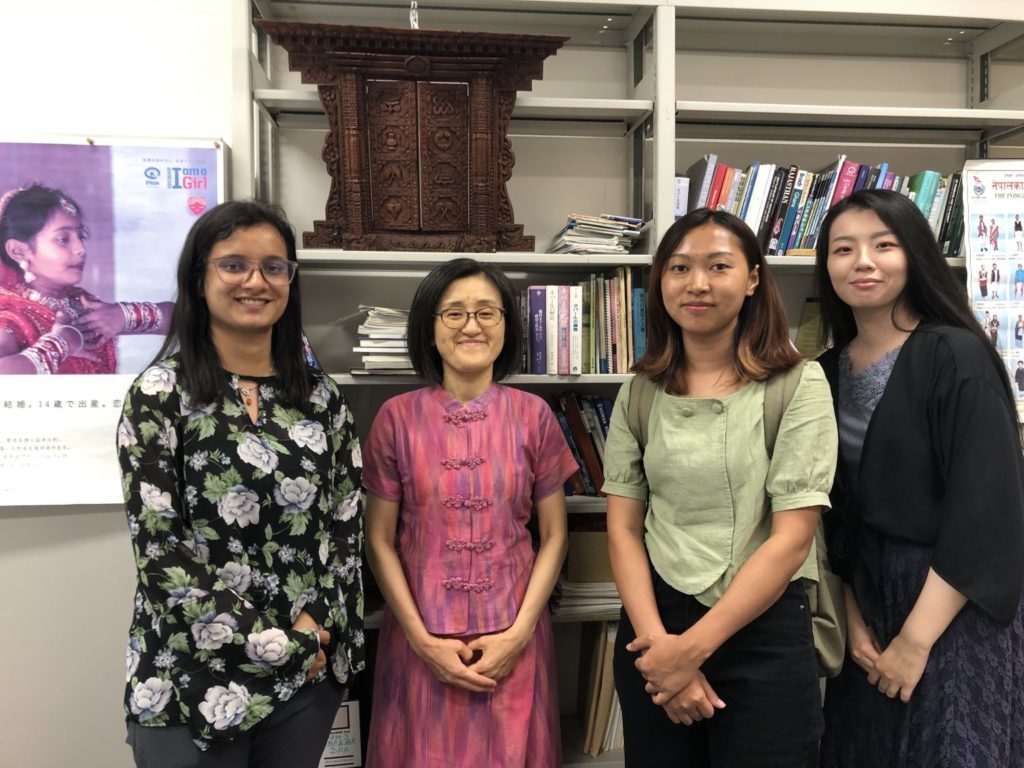
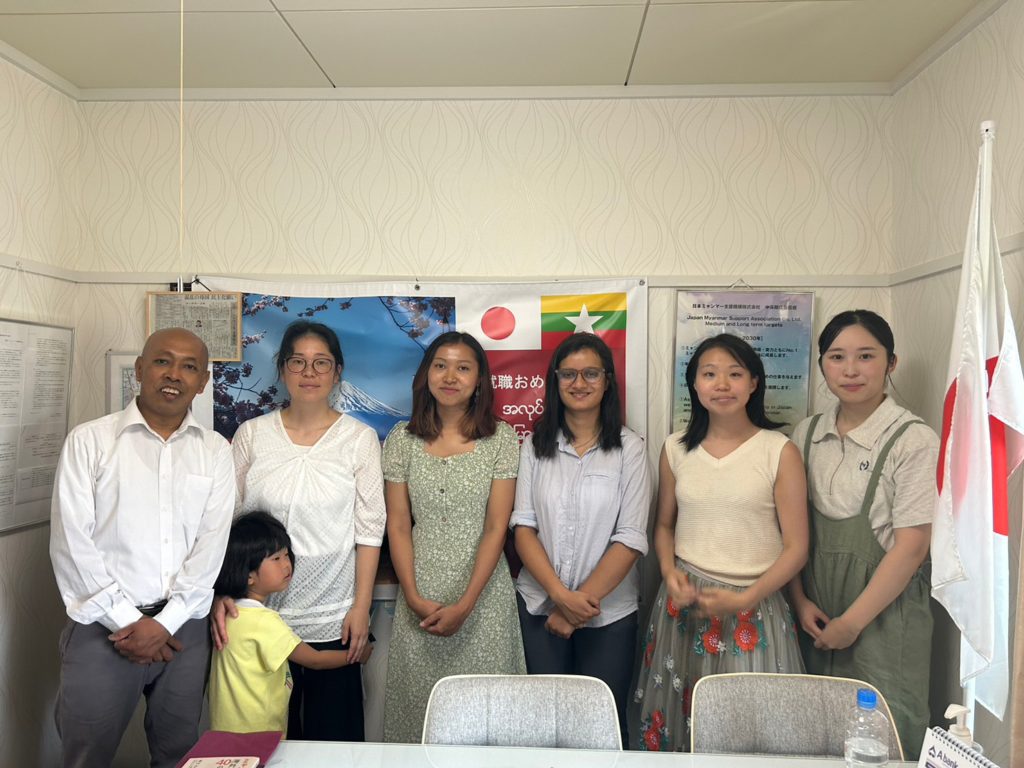
We also attended Prof. Shin’s exchange class, which was a part of the summer exchange program at the university. The class largely revolved around women’s political representation, identical to what we learned in our Gender and Politics course at AIT. An intriguing discussion on quotas was the key highlight for us, and it mainly led to a differentiated view, thereby changing our perspectives to some extent regarding quota systems and promoting gender equality in political spheres. Later it was even more interesting to discuss it with Prof. Shin at the lunch party organized towards the end, which led to an even deeper understanding.
The most cherished interaction throughout the trip for both of us was meeting Professor Masako Tanaka, also called Tanaka sensei by her students at the School of Foreign Studies, Sophia University. A warm, extremely welcoming, and empathetic sensei, who made sure we felt at home in the foreign land by portraying our culture in her room with Nepali posters as well as Nepali books around her room and wearing Burmese clothes just to show respect to our roots, was pretty appreciative. Her elaborated knowledge of reproductive rights and their practice among migrant workers gave us a different perspective on connecting public health, gender, and migration. Seeing how she encouraged us to interact throughout was even more inviting, humbly answering our questions without hesitation. The 2-hour long discussion on gender, migration, and public health went in no time, and we are very grateful for her support throughout.
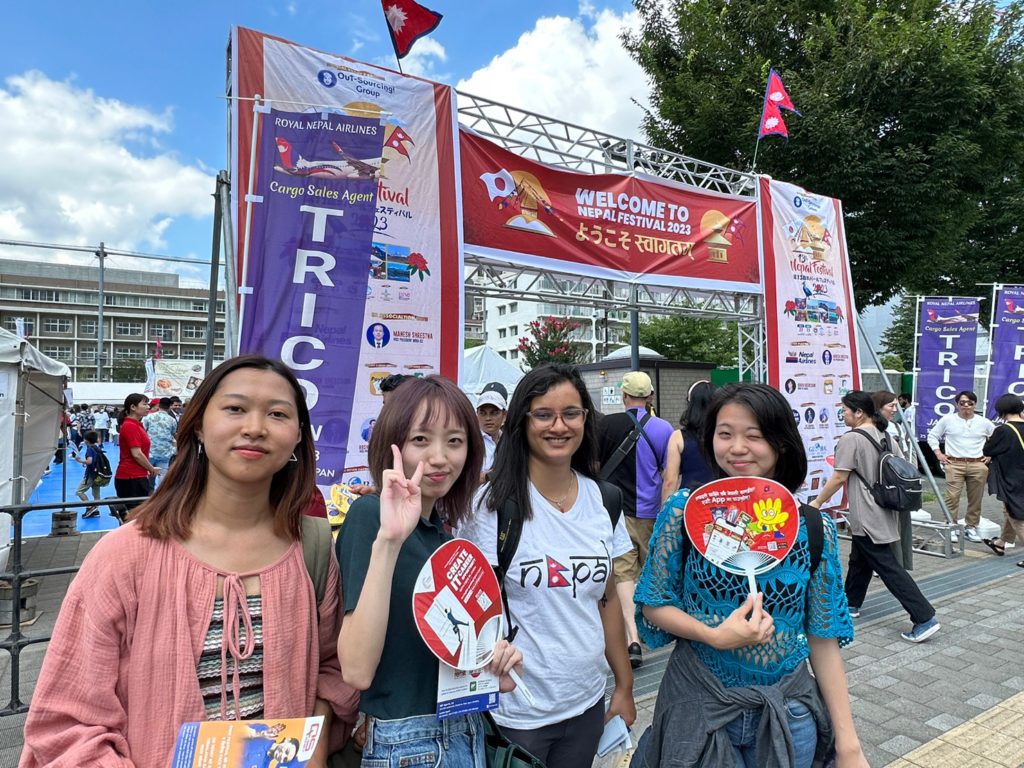
Apart from the knowledge, we got to garner from the program, it was the connections and memories we made that we cherish the most. Our Japanese friends took us to places from Yokohama to Takadanobaba to Ueno to Asakusa and Skytree and attended the Nepali festival to feel closer to the Nepali community in Japan, where we made great memories. We met our friends and families living in Japan who were kind enough to take us around the Imperial Palace, Tokyo Station, and the summer festival in Sugamo.
Moreover, the continuous and persistent efforts of people at Ochanomizu University, which started right from the time we were even ready to depart on July 19 to getting us to Narita Airport on July 26, made sure we felt safe and at home in a faraway land be it through picking us up at the airport, casual lunch parties and dinner parties or just helping us get to places through their amazing navigation as well as translational skills.
We are eternally grateful to AIT and Ochanomizu University for this fantastic opportunity to cherish and explore the beauty, hospitality, and knowledge from the world’s oldest kingdom, Japan. We did return with tons of knowledge, memories, networks to work with, and friends.
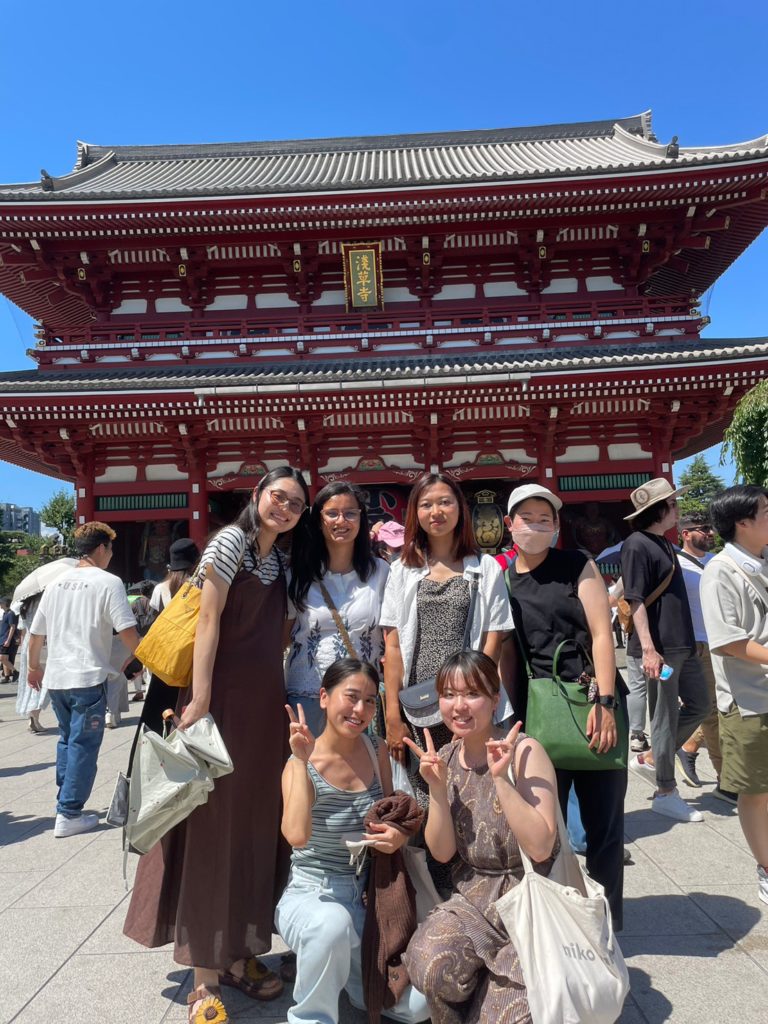
Article & Photos Credit from ait.ac.th
